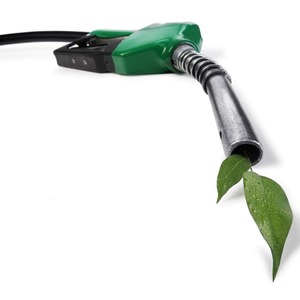US, Brazil classify ethanol industry as essential during pandemic

March 24, 2020
BY Erin Krueger
The governments of the two largest ethanol producing countries, the U.S. and Brazil, have each classified ethanol plant employees as essential critical infrastructure workers during the COVID-19 pandemic.
The U.S. Department of Homeland Security’s Cybersecurity and Infrastructure Security Agency issued guidance on March 19 that that identifies “farm workers and support service workers to include those who field crops; commodity inspection; fuel ethanol facilities; storage facilities; and other agricultural inputs” as workers critical in the food and agriculture sector. Workers at retail fuel centers, such as gas stations and truck stops, and those who work in the distribution systems that support those fuel centers are also classified as critical workers.
The initial list of essential critical infrastructure workers aims to help state and local officials as they work to protect their communities, while ensuring continuity of functions critical to public health and safety, as well as economic and national security. “If you work in a critical infrastructure industry, as defined by the Department of Homeland Security…you have a special responsibility to maintain your normal work schedule,” said the agency in the guidance.
The Brazilian government on March 20 issued a decree that classifies the production, distribution and sale of fuel as an essential activity during the COVID-19 pandemic. UNICA, the Brazilian sugarcane industry association, issued a statement on March 24 stating that its associates are functioning in compliance with that decree.
Advertisement
Advertisement
According to UNICA, the sugar-energy sector provides Brazil with essential services for the production, distribution and sale of fuel and derivatives. The industry also provides electricity generation, a food product, and alcohol for use in disinfectants.
Advertisement
Advertisement
Related Stories
Broco Energy on July 17 announced a new partnership with the Massachusetts Port Authority (Massport) to deliver and transition Massport's fuel tanks to renewable diesel across its various facilities.
Shell Aviation, Accenture, and Amex GBT on July 10 announced Avelia is in the process of evolving to an industry solution with independent data hosting and a multi-supplier model helping users access the GHG benefits of SAF.
The U.S EPA on July 17 released data showing more than 1.9 billion RINs were generated under the RFS during June, down 11% when compared to the same month of last year. Total RIN generation for the first half of 2025 reached 11.17 billion.
The U.S. EPA on July 17 published updated small refinery exemption (SRE) data, reporting that six new SRE petitions have been filed under the RFS during the past month. A total of 195 SRE petitions are now pending.
European biodiesel producer Greenergy on July 10 confirmed plans to shut down its biodiesel plant in Immingham, Lincolnshire, U.K. The company temporarily suspended operations at the facility earlier this year.
Upcoming Events










